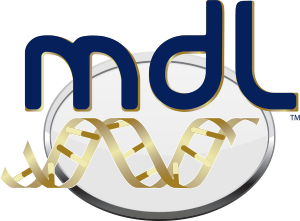Dermatology Pathology Services
Utilizing advanced testing, our board-certified pathologists with specialized training provide rapid, reliable test results to aid in diagnosing or screening for dermatologic conditions.
Our broad portfolio of dermatology testing includes:
Tissue analysis/biopsies
Board Certified pathologists and expert technologists in the fields of dermatology and anatomic pathology will evaluate tissue biopsies and perform tissue testing and analysis for the presence of abnormal cells and provide detailed diagnostic information.
Antimicrobial susceptibility
is used to determine the likelihood that a particular antibiotic or antifungal drug will be effective in stopping the growth of the bacteria or fungus causing an infection and is used to guide treatment decisions.
Molecular Microbiology
by the DNA-based Polymerase Chain Reaction (PCR) method detects the presence of dermatologic pathogens which can cause infections. The OneSwab® specimen collection platform offers a superior route of pathogen detection with a high diagnostic specificity and sensitivity.
OneSwab® Advantages
- One vial, multiple pathogens
- DNA amplification via PCR technology
- Simple & convenient specimen collection
- High precision robotic accuracy
- High diagnostic sensitivity & specificity
- Specimen viability up to 5 days after collection
- Test additions available up to 30 days after collection
- No refrigeration required before or after collection
Nail Analysis
All nail specimens have a minimum of a Periodic Acid Schiff for Fungus (PAS-F) stain for the presence of fungal organisms performed. Additional services include:
- Reflex Grocott Methenamine-Silver (GMS), a stain commonly used for the identification of fungi
- Dermatophyte DNA Panel by the DNA-based Polymerase Chain Reaction (PCR) method to detect the presence of 56 fungi with identification of 29 species dermatologic pathogens which can cause nail infections performed as an addition to the initial basic services.
Hereditary Genetics – Hereditary Melanoma
genetic testing may confirm a diagnosis and help guide treatment and management decisions. Identification of a disease-causing variant would also guide testing and diagnosis of at-risk relatives. Pathogenic variants in multiple genes have been implicated in hereditary melanoma.
Pharmacogenomic testing
using state-of-the-art Next Generation Sequencing (NGS) technology, evaluates an individual’s genetic makeup to predict how an individual responds to drugs based on their genetic variability. It provides information about genetic influences on the dosing, toxicities, and efficacy of specific drugs.
